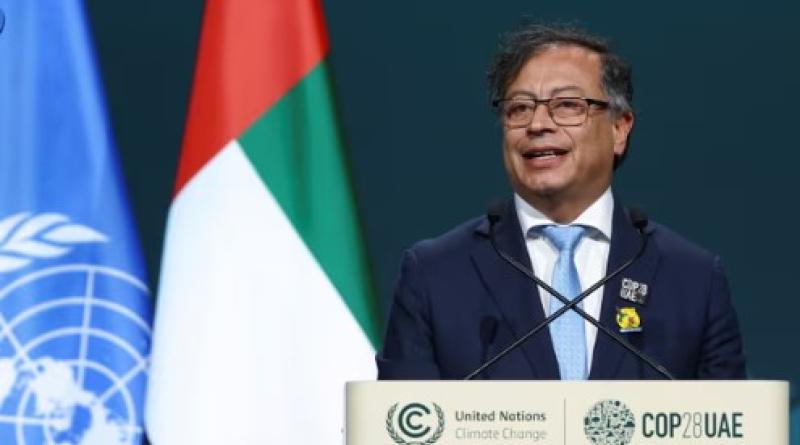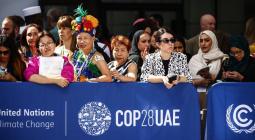The Guardian view on a non-proliferation treaty: fossil fuels are weapons of mass destruction

The planet faces an existential threat if we do not transition from the current extractive model of growth to a low-carbon economy
Colombia’s economy is dependent on fossil fuels, which account for about half of its exports. But at the UN climate summit this weekend, Gustavo Petro, the country’s president, committed to stop the expansion of coal, oil and gas exploitation and reorient his nation away from such “poisons”. Colombia is the first big economy to endorse a fossil fuel non-proliferation treaty. This is a sensible, globally significant step – which raises the question of why other carbon-exporting OECD members, such as Britain, shouldn’t follow suit.
What is crazy is that governments plan to produce more than double the amount of fossil fuels in 2030 that is consistent with a “safe” global temperature rise of 1.5C. The paradox the treaty seeks to address is that the Paris agreement does not mention the fossil fuels responsible for global heating. But a handful of nations could show how phasing out fossil fuels can lead to sustainable green development and rebut the absurd denialism of Sultan Al Jaber, the oil boss and Cop28 president. There are precedents: the 1997 mine ban treaty began with few backers, but was later ratified by 164 countries.
Humanity is at risk if there is no transition away from an extractive growth model to a greener one. Developing nations, such as Colombia, often run deficits in energy and food while exporting low-value goods relative to their imports. Africa’s largest crude oil exporter, Nigeria, imports nearly all its fuel. Seven in 10 economies import more food than they export. Consequently, developing nations suffer a structural trade deficit that leads to a weakening currency and the need to borrow dollars. Poor nations under such a regime transfer about $2tn a year to rich ones, studies suggest.
Developing nations want to replace the current inequitable model of globalisation with a fairer one. This has been done before. After 1945, West Germany was to be a “pastoral state” – dependent on others for energy, food and technology. But two years later, to keep the country from Moscow’s orbit, it was allowed to industrialise under the Marshall plan. Half the debt accumulated after two world wars was cancelled. Germany was allowed to replace imports with home-manufactured goods that, thanks to generous trade concessions, could be exported to richer nations. Despite recovering from war, the US sent Germany 5% of its GDP, about $1.5tn in today’s money.
What’s needed today is a “green Marshall plan”. But former colonial powers with historical climate responsibility won’t stump up the cash. The world’s poorest countries are paying more than 12 times as much to their creditors as they are spending on preventing environmental destruction. Some resource-rich poor nations are negotiating a place in green industrial supply chains by playing the US off against China. But the Kenya-based economist Fadhel Kaboub is right: the climate emergency needs not incremental but transformational change in the trade, investment and finance architecture.
Fossil fuels are today’s weapons of mass destruction, representing an existential threat. There are parallels with 1968’s treaty on the non-proliferation of nuclear weapons. Part of the solution to the climate emergency is to increase the use of renewables. But equally important is to stop the expansion of fossil fuel production, and not just with a vague promise that emissions will be abated in the future. Richer nations that benefited the most from coal, oil and gas extraction should commit to ending, equitably, the era of fossil fuels. Anything else, as the president of Timor-Leste, José Ramos-Horta, says, would be “crocodile tears”.
Photograph: Amr Alfiky/Reuters





